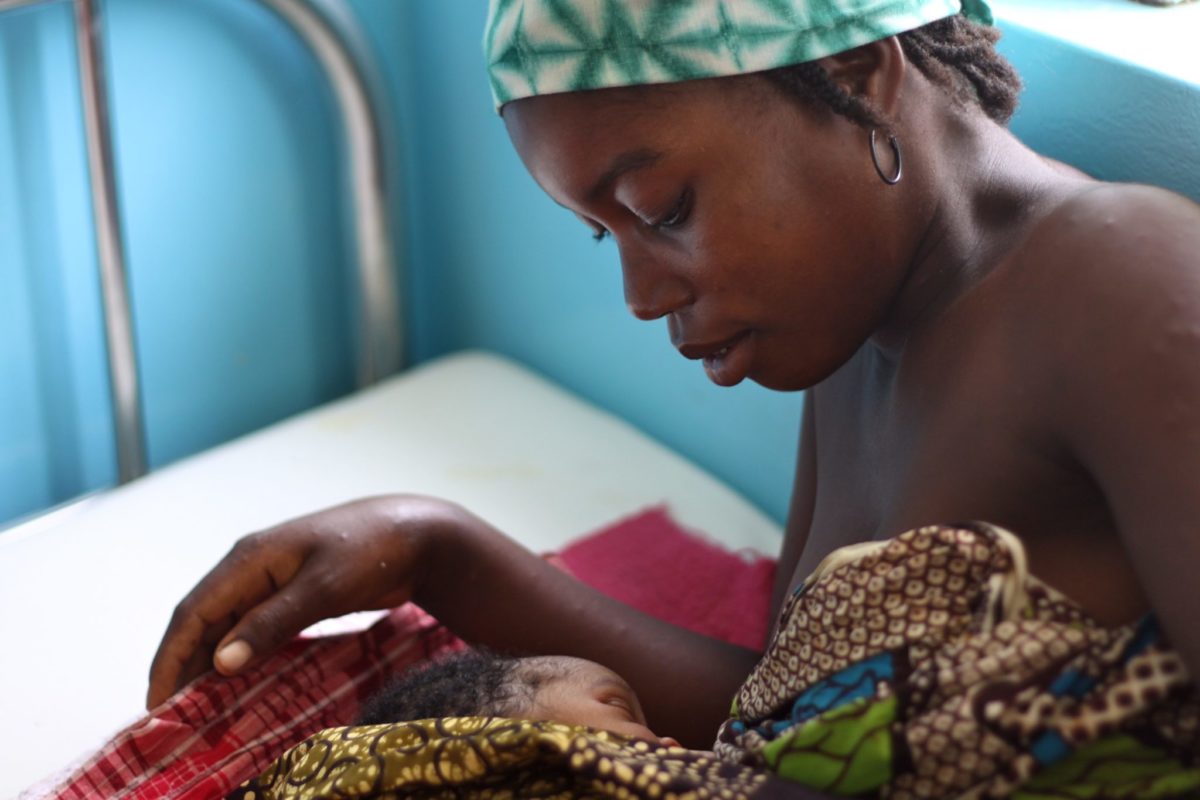Nurturing Care Framework Provides Opportunity to Invest in Nutrition

Ensuring the health and potential of a child starts in pregnancy and continues throughout life. In fact, a child’s brain and body grow more rapidly in the 1,000-day window between pregnancy and age two than at any other point in human development. To take advantage of that window of opportunity, various “nurturing care” supports including good health, adequate nutrition, responsive caregiving, safety and security, and early learning opportunities are needed.
Recognizing these key components of child development, the Nurturing Care Framework is being launched by the World Health Organization (WHO) and UNICEF at this year’s World Health Assembly (WHA). This framework builds off the evidence in the Lancet series on Advancing Early Childhood Development (ECD) and calls for integrated action for ECD. It brings together stakeholders from across sectors to put forth a roadmap for policies and programs that promote healthy, thriving children.
Nutrition for the win
As a pillar of the Nurturing Care Framework, good nutrition is essential to early childhood development. It is the fuel that children need to survive and thrive. When combined with other ECD interventions like good health and responsive care, the effect is even greater. Luckily, there is a single nutrition intervention that provides adequate nutrition, good health and responsive care, all wrapped into one: breastfeeding.
Breastmilk: the ultimate superfood
Breastmilk is the most nutritionally and immunologically potent food for infants – and the health and brain-boosting benefits of breastfeeding extend into toddlerhood. Breastmilk fuels brain development, protects against disease and illness and sets a child upon a path toward better health and a more prosperous future.
In fact, breastfeeding has the single largest potential impact on child survival of any preventive intervention. As a baby’s first vaccine, breastmilk boosts the child’s immune system and has an enormous impact on preventing diseases such as diarrhea and pneumonia. Breastfeeding also reduces the risk of non-communicable diseases and decreases the prevalence of overweight, obesity and diabetes later in life.
Breastfeeding involves a great deal of mother-child interaction and nurturing, providing an opportunity for responsive care. Babies’ brains are shaped not only by the quality of the nutrition they get, but also by the quality of the experiences and interactions they have with caregivers. The physical act of breastfeeding strengthens a baby’s sensory and emotional circuitry, critical for cognitive and socio-emotional development.
It’s clear that in many ways, breastfeeding helps level the playing field to give every child a fair start in life, enabling millions of young children to thrive and reach their full potential. Improving breastfeeding rates can have an enormous impact on a nation’s economy by increasing productivity, cutting health care costs and saving lives.
Policymakers must step up
The benefits are clear and yet women in every corner of the world face too many barriers to start and continue breastfeeding successfully. Recent analysis by the Global Breastfeeding Collective, led by WHO and UNICEF, shows that no country is adequately supporting moms to breastfeed.
Policymakers interested in improving early childhood development outcomes and enacting the Nurturing Care Framework should invest in breastfeeding as an invaluable first step.
The investment for breastfeeding is relatively low-cost but high-impact. For only $4.70 per newborn, policymakers can finance:
- improved access to skilled breastfeeding counseling
- better practices in maternity facilities
- national breastfeeding education efforts
- development of paid family leave policies
- implementation of the International Code of Marketing of Breastmilk Substitutes to restrict the unethical promotion of infant and toddler formula.
Setting the foundation for development
When we don’t nourish a child’s potential in the first 1,000 days, we all feel the consequences. Many of the issues with which policymakers’ struggle—from educational achievement gaps, to higher healthcare costs, to deepening disparities—have their roots in how well a child fares during the first years of life.
World leaders should not pass up the opportunity to support breastfeeding and nutrition as part of their agenda on early childhood development and in their efforts to build a more equitable and healthy world.
1,000 Days joined other civil society organizations in calling for a global framework for nurturing care to include health diets. Read the full statement here.
